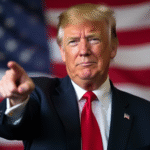Introduction
The much-anticipated high-level debate of the 80th UN General Assembly commenced on Monday and will conclude on Sunday. Although several days remain, it has already exposed the fractures in our world.
The Trump Speech: A Divisive Rhetoric
The most anticipated speech was delivered by Donald Trump, who did not hold back. He repeated his “America First” mantra and criticized allies, claiming that European nations are destroying themselves through “suicidal” migration and green energy policies that undermine competitiveness. He falsely accused London’s mayor, Sadiq Khan, of wanting to impose Sharia law and ridiculed Britain’s immigration policy. Trump concluded by calling climate change “the greatest hoax ever perpetrated,” an invention of “fools” that weakens those who believe it. His speech was not that of a statesman; it was an electioneering rally, cheered by his supporters and denounced by nearly everyone else.
Reactions from World Leaders
Reactions were swift and clear. Among the leaders of NATO countries, there was cautious support: more military spending and unity within the Alliance, with reservations. The rest of the world defended multilateralism and cooperation as antidotes to Trump’s nationalist wave. The UN once again mirrored a divided planet: on one side, those following the US President; on the other, those who believe multilateralism is essential for any future.
Israel’s Isolation
Amidst this clash, Israel found itself isolated. Its offensive in Gaza, condemned by numerous countries, turned it into a pariah. Accused of genocide and human rights violations, Israel faced international criticism.
Mexico’s Stance
Mexico, represented by Secretary of Foreign Affairs Juan Ramón de la Fuente, upheld tradition: sovereignty, international law, and peaceful solutions. Mexico denounced the genocide in Gaza and demanded an immediate ceasefire with humanitarian aid access. It defended Ukraine’s territorial integrity but refrained from joining calls for militarization.
Promoting Balance
While Trump turned the UN into a stage for confrontation, Mexico promoted equilibrium: cooperation with the US on security and drug trafficking, but within legality and mutual respect. It’s not a comfortable position, but it’s the only option for a country caught between neighboring the world’s most powerful nation and upholding principles.
America Latina’s Diverse Voices
America Latina showcased its diversity: Brazil spoke of integration, while Cuba and Venezuela criticized the US. Mexico offered a pragmatic voice, building bridges and denouncing abuses.
The Outcome Remains Uncertain
As the 2025 UN General Assembly draws to a close on September 29, resolutions on Gaza, Ukraine’s sovereignty, climate commitments, and migration agreements may be defined. The outcome will reveal whether it’s another setback for multilateralism or a renewed attempt to save it.
Key Questions and Answers
- What was the main topic of discussion at the 80th UN General Assembly? The high-level debate focused on nationalism versus multilateralism, reflecting global divisions.
- How did world leaders react to Donald Trump’s speech? There was cautious support from NATO leaders, while the rest of the world defended multilateralism and cooperation.
- What challenges is Israel facing at the UN? Israel’s offensive in Gaza led to international criticism and accusations of genocide and human rights violations.
- What position did Mexico take during the assembly? Mexico promoted balance, advocating for cooperation with the US on security and drug trafficking within legality and mutual respect.
- How did America Latina countries express their views? The region showcased its diversity, with some advocating for integration and others criticizing the US.
- What is uncertain about the assembly’s outcome? The resolutions on critical issues like Gaza, Ukraine, climate change, and migration will determine whether it’s a setback for multilateralism or a renewed effort to preserve it.






